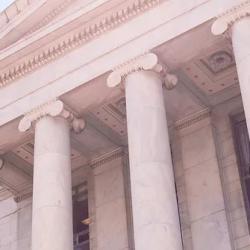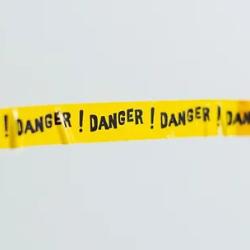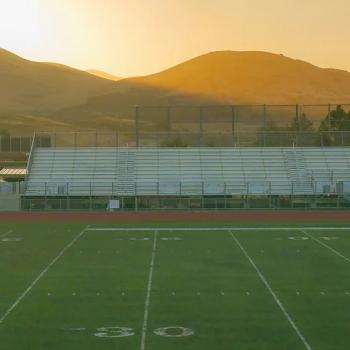The Year of Stretching
2020 has been a year of unprecedented stretching. We feel the constant pull of uncertainty, change, and challenge. The COVID shut down makes the disruptions of the last 40 years seem like minor inconveniences. We are swimming in a sea of dark ambiguity, not sure how long it will last, not sure what plans we can make for the future, not sure about ourselves or loved ones’ health and security.
Americans can’t travel overseas. Most of us are doing at least some of our work from home. Many of us are feeling isolated, as we’ve not been able to travel and socialize freely. Some of our jobs have been lost to the mandated economic shutdown. Some of our jobs are in jeopardy. All of our jobs have been affected. I write this in the ninth month of the Coronavirus Pandemic, with cases and restrictions rising and a vaccine on the horizon.
In the midst of all this turmoil, we continue to face the types of adversity expected in normal life. At work, we face office politics, industry shifts, personality clashes. Outside of work, we face the threat of illness, challenging family dynamics, the drama of rights of passage, and the realities of growing older.
In light of all this, what do you need right now?
- A break from Zoom?
- Unmasked time with family and friends?
- A job or a more secure job or a better fitting job?
- The freedom to travel?
- Kids to go back to school at school?
- Sleep?
In a word, resilience. Resilience is what we need to survive and thrive in a world upended.
Resilience Defined
Resilience is the ability to snap back from stress or strain. In the strictest terms, resilience is a quality of physical objects akin to elasticity. Rubber bands are resilient.
When applied to people, resilience is the ability to snap back from adversity. Though contorted by challenge, the resilient person quickly returns to joy and productivity. In the circumstances like this year, we see resilience take two forms.
- Crisis Resilience is the capacity to withstand the shock of change and be agile and productive.
- Chronic Resilience is the capacity to endure the drought, the long grind created by a never-ending crisis.
The Roots of Resilience
Resilience is admired and encouraged in our culture. It is akin to grit, tenacity, and staying power. People with resilience are described as tough as nails. They have an iron will. They prove the indomitable nature of the human spirit.
This series of posts will explore the spiritual roots of a resilient life. I invite the reader to focus on an explicitly spiritual mindset that will deepen your capacity to recover quickly from the shocks of our times. In this post, we consider the idea that resilience is a spiritual matter, something larger than the human spirit on its own.
The ancient wisdom writer says:
For the righteous falls seven times and rises again, but the wicked stumble in times of calamity. (Proverbs 24:16)
At some level, we know this is true. Some people keep going in the face of adversity, and others seem irreparably damaged. They don’t recover. This ancient voice identifies the type of person who experiences each alternative. Note, it is not suggested that good people avoid adversity, and bad people have problems. Everyone has struggle. But the righteous person recovers. They get back up. They are resilient. The wicked, on the other hand, are defined by their fall.
In the context of this ancient proverb, to be righteous was to be aligned with God’s right way. This type of living puts a person on the path to a broader perspective, practical wisdom, and granular strength. It puts them on the path to the kind of reassurances that hook one’s resilience into something and someone larger than ourselves and our circumstances.
The wicked person stumbles in times of calamity. They come unglued in their misfortune and injury.
Implied in the above Proverb is that the righteous person is helped to his or her feet by God himself. God cares. God is present. And God takes ultimate responsibility for the well-being of those who trust him enough to align with him.
Questions to Take it Further
- What strikes you about the categories of the “righteous” and the “wicked?” Which group do you place yourself in and why?
- On a scale of 1 to 10, how resilient are you? How quickly do you get back on your feet (return to productivity and joy) after a setback?
- What is your resilience hooked into? Who or what do you lean on to convince yourself that you/your situation will be ok enough to reengage and keep going?
Next Time
In our next post, we will begin to explore specific spiritual principles and practices that can ground and deepen our resilience.













